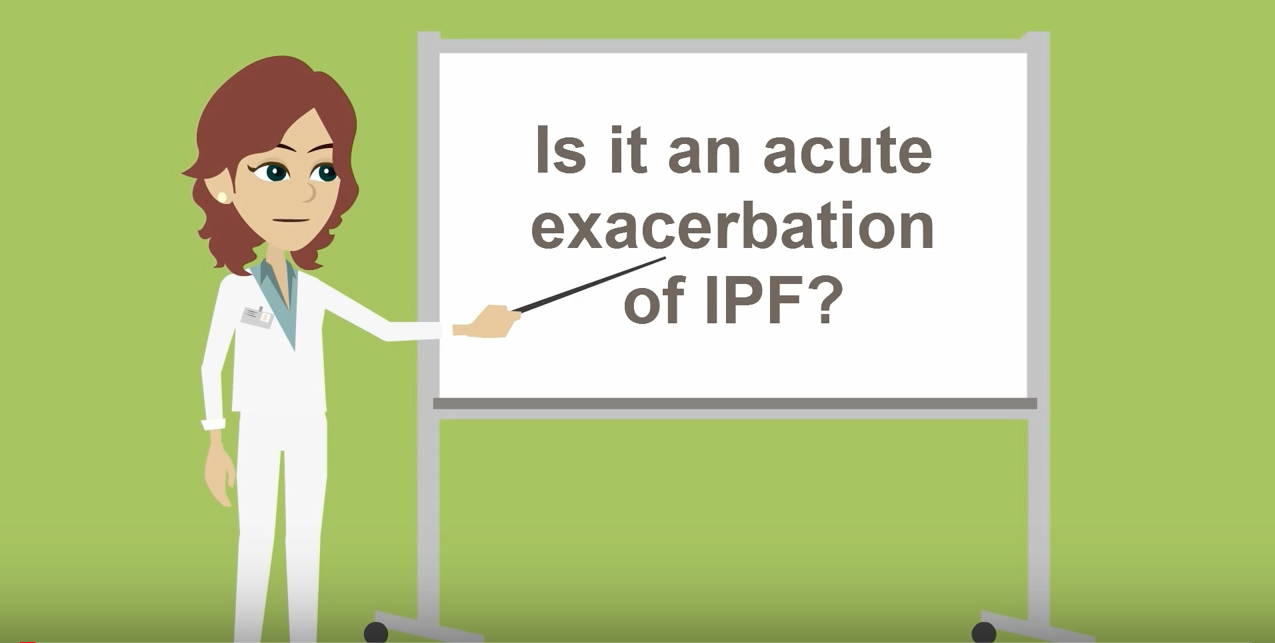-
Acute Exacerbations of Idiopathic Pulmonary Fibrosis (IPF).

An acute exacerbation (AE) of any illness is broadly defined as a serious and sudden worsening of symptoms that can last several days. They are typically caused by environmental triggers, or a bacterial or viral infection according to Wikipedia. While Wikipedia is not a credible source for information, especially information pertaining to health topics, this definition of an acute exacerbation is similar on various other online platforms as well.
For more a credible, complex and scientific based definition or explanation of an acute exacerbation, specifically of idiopathic pulmonary fibrosis (IPF), please visit this website.
About a year ago, Boehringer Ingelheim produced a YouTube video aimed at helping patients identify if they are experiencing an acute exacerbation of IPF, and recently it has been circulating the internet. The full YouTube video can be found here.
I had an acute exacerbation of my lungs in May 2017, and it was one of the scariest experiences of my life. As a result of this, I am so cautious about avoiding illnesses and trying to stay as healthy as possible as my AE was caused by a virus that infected both of my lungs. It also had an impact on my lung function and the physiological condition of my lungs, increasing scar tissue and reducing my ability to effectively move oxygen in and out of my lungs.
If you’re ever concerned you are experiencing an AE, please refer to this video if you have time or simply don’t second guess yourself and get medical attention. If it is not an acute exacerbation, then better to be safe than sorry.
Have you ever experienced an acute exacerbation of IPF?
Are you aware of the symptoms of an AE?
Log in to reply.
